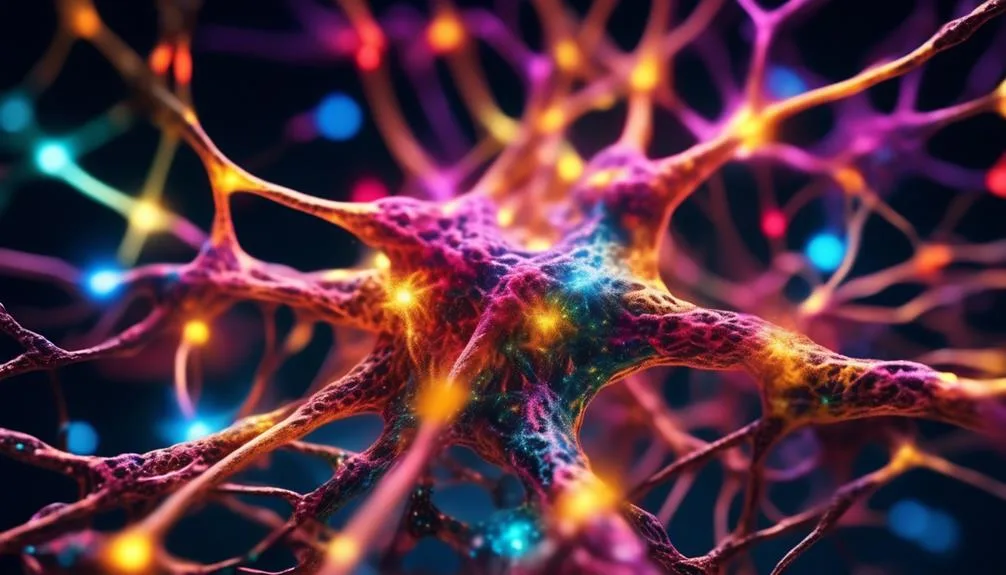Are you tired of the never-ending pursuit of happiness? Well, get ready to dive into a world where happiness is dissected and analyzed to its core.
In this article, we will explore the factors that contribute to unlocking happiness and take you on a journey that will challenge your beliefs and broaden your understanding. From the science behind happiness to the impact of money and genetics, we will uncover the secrets that have eluded us for so long.
But that's not all; we will also delve into the connection between happiness and work, and explore its global significance. So, brace yourself for a thought-provoking exploration of happiness, where we leave no stone unturned in our quest for a more joyful and fulfilling life.
Key Takeaways
- Happiness is defined as the positive emotions experienced through pleasurable activities, and it is influenced by factors such as positive emotions, attitude towards physical health, social class and wealth, attachment and relatedness, goals and self-efficacy, and time and place.
- The science of happiness focuses on understanding what happiness is and how to experience it, shifting the focus from pathology to wellbeing and happiness.
- Money has a limited effect on emotional wellbeing after a certain threshold, and genetics play a minimal role in determining happiness compared to experiences and day-to-day lives.
- Pursuing happiness through social means, pursuing vague happiness goals, and acts of kindness have been shown to be more effective in unlocking happiness.
Definition and Factors of Happiness
When it comes to understanding happiness, it's important to explore its definition and the various factors that contribute to its experience.
Happiness measurement involves the assessment of positive emotions experienced through pleasurable activities. These emotions, such as pleasure, comfort, gratitude, hope, and inspiration, play a significant role in shaping our happiness.
Additionally, the impact of social relationships can't be overlooked. Our attachment and relatedness to others greatly influence our happiness. Positive social connections contribute to a sense of belonging and support, which in turn enhances our overall wellbeing.
It's through our relationships with others that we find fulfillment and meaning in life. Therefore, to truly understand happiness, we must consider not only individual experiences but also the quality of our social connections.
The Science of Happiness

Positive psychology has revolutionized the field of happiness, shifting the focus from pathology to understanding the science behind experiencing emotional well-being and happiness. This scientific approach aims to uncover what happiness truly is and how we can achieve it.
Research in positive psychology has provided valuable insights into what drives happiness, revealing that money has a limited effect on emotional well-being beyond a certain threshold. Furthermore, genetics play a minimal role in determining happiness compared to our day-to-day experiences and lives.
Current studies suggest that trying too hard to find happiness can lead to selfishness, and pursuing happiness through social means may be more effective than other methods. Additionally, pursuing vague happiness goals may yield better results than specific ones.
Current Research and Studies

Current research and studies in the field of happiness have revealed valuable insights into the factors that contribute to our overall well-being and how we can cultivate happiness in our lives. Pursuit methods and long-term effects have been the focus of recent investigations.
It has been found that trying too hard to find happiness can actually lead to selfishness. Instead, pursuing happiness through social means has been found to be more effective. Interestingly, pursuing vague happiness goals may be more effective than specific ones.
Additionally, research has shown that money's effect on happiness plateaus at around $75,000, indicating that there are diminishing returns to wealth. These findings highlight the importance of considering different approaches and strategies in the pursuit of happiness.
The Scientific Research on Happiness at Work

The exploration of happiness extends to the workplace as scientific research delves into the impact of happiness on employee well-being and organizational success.
Studies have shown that workplace culture plays a significant role in determining employee happiness. A positive and supportive culture, where employees feel valued, respected, and have opportunities for growth, can greatly enhance their happiness levels. On the other hand, a toxic or negative culture can lead to dissatisfaction and unhappiness.
Additionally, leadership plays a crucial role in fostering happiness at work. Effective leaders who prioritize employee well-being, provide clear communication, and empower their teams create a positive work environment that promotes happiness.
The Global Pursuit of Happiness

Unlocking happiness on a global scale is a universal endeavor that transcends borders and cultures. The pursuit of happiness isn't limited to individual countries or regions; it's a collective effort to improve the overall well-being of people worldwide.
One way to measure this global pursuit is through the Global Happiness Index, which ranks countries based on various factors that contribute to happiness, such as income, social support, and life expectancy.
Cultural influences also play a significant role in shaping the happiness levels of different societies. For example, some cultures prioritize communal harmony and social relationships, while others prioritize individual achievement and material wealth.
Understanding these cultural influences is crucial in creating policies and interventions that can enhance happiness across diverse populations. By recognizing the universal desire for happiness and considering cultural nuances, we can work towards a happier world for all.
Training the Brain for Happiness

As we continue our exploration of the global pursuit of happiness, we now turn our attention to the fascinating concept of training the brain for happiness.
Mindfulness practices and positive affirmations are two key methods to achieve this. Mindfulness practices involve being fully present in the moment, observing thoughts and emotions without judgment. By cultivating mindfulness, you can train your brain to focus on the positive aspects of life and let go of negative thoughts.
Positive affirmations, on the other hand, involve repeating positive statements about yourself or your life. This helps rewire your brain to believe in your own happiness and potential.
Both mindfulness practices and positive affirmations can have a profound impact on your overall wellbeing and happiness.
Frequently Asked Questions
How Does Personality Type Affect Happiness?
Your personality traits can have a significant impact on your overall life satisfaction. While genetics play a role in happiness, experiences and day-to-day life have a greater influence on your happiness levels.
What Is the Relationship Between Social Class and Happiness?
The relationship between social class and happiness is complex. Social mobility and income inequality play a role. Higher social class can provide access to resources and opportunities that contribute to happiness, but it's not the sole determinant.
Are There Any Specific Strategies or Techniques That Can Help Individuals Increase Their Happiness in Their Day-To-Day Lives?
Incorporating positive psychology and mindfulness techniques into your day-to-day life can help increase your happiness. By focusing on the present moment and cultivating positive emotions, you can unlock greater happiness in your daily experiences.
How Does Happiness in the Workplace Contribute to Overall Organizational Success?
Happiness in the workplace is crucial for overall organizational success. A fascinating statistic shows that happy employees are 12% more productive. Work-life balance and high employee engagement contribute to a positive and thriving work environment.
Can Training the Brain to Be Happier Have Long-Lasting Effects on Overall Happiness Levels?
Training your brain to be happier can have long-lasting effects on your overall happiness levels. By rewiring neural pathways and cultivating positive habits, you can experience sustained improvements in your well-being and outlook on life.
Conclusion
Congratulations! You have now embarked on a thrilling global pursuit of happiness. By delving into the fascinating world of happiness and uncovering its true potential, you have gained valuable insights into the factors that contribute to a more fulfilling and joyful life.
Through scientific research, studies, and a deeper understanding of the connection between happiness and work, you're now equipped with the knowledge to train your brain and perform acts of kindness, leading to increased happiness.
So, embrace this exciting journey and unlock the secrets to a happier existence. Happy adventures await!

